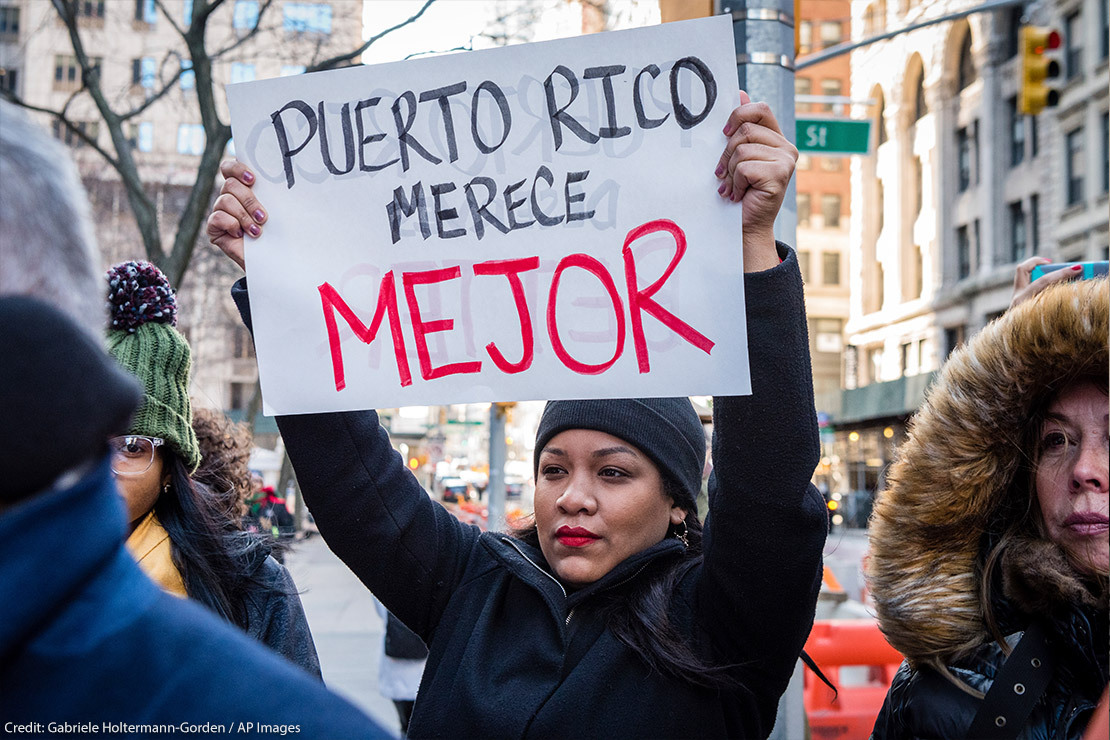ACLU Files Federal Lawsuit Challenging Puerto Rico’s Failure to Protect Voters Over 60 During COVID-19 Pandemic
SAN JUAN, P.R. — The American Civil Liberties Union, ACLU of Puerto Rico, and Paul, Weiss, Rifkind, Wharton & Garrison LLP filed a federal lawsuit today challenging the Puerto Rico Election Commission’s failure to implement steps to ensure voters over 60 can safely cast a ballot in the November general election in the midst of the COVID-19 pandemic.
Puerto Rico has already empowered the commission to implement accommodations to keep older citizens safe for the elections, including access to early and absentee voting, through a joint resolution of the Legislative Assembly for the primaries and an updated election code applicable to the Nov. 3 election.
“The problem is the commission isn’t doing anything to fulfill its existing legal mandate to protect voters for the November election. Older people are at particularly high risk of serious illness or death if they contract COVID-19. They need absentee and early voting options, but the commission is foot-dragging when it comes to adopting the necessary policies,” said Mayte Bayolo-Alonso, legislative attorney with the ACLU of Puerto Rico.
The case was brought on behalf of Puerto Rico residents who are over 60 and want to vote safely, either by absentee ballot or early voting to avoid crowds.
Plaintiffs Belia Arlene Ocasio, 67, and Efrain Colon Damiani, 69, are among the many Puerto Ricans who are at high risk of severe illness or death should they contract COVID-19, but who nonetheless will have to violate social distancing guidelines and risk their health in order to vote in November. Neither qualifies for early voting in Puerto Rico under any of the categories authorized by the election code for the 2020 general election, and will have to vote in person on Nov. 3, absent any relief.
The lawsuit notes that, “The spread of COVID-19 from overcrowding in polling places is especially likely to occur in Puerto Rico because of its trifecta of restricted mail-in voting policies, high voter turnout, and limited number of polling places. This consequence is heavily felt by Puerto Rico’s senior citizens, who according to recent U.S. Census Bureau data, comprise more than 20% of Puerto Rico’s population. Because the commission has provided voters no option that avoids exposure to COVID-19, it has effectively disenfranchised a significant number of its citizens who cannot risk exposing themselves to COVID-19.”
Puerto Rico Gov. Wanda Vázquez announced stricter measures Wednesday to combat the jump in COVID-19 cases. The measures include a 24-hour lockdown every Sunday. Face masks remain mandatory.
The plaintiffs are seeking a court order requiring the Puerto Rico Election Commission to implement policies that will allow older voters to access early and absentee voting. The lawsuit estimates 800,000 voters over the age of 60 could benefit.
Accommodations that allow older people to access early voting or vote by mail during the pandemic are being adopted by many states, including Indiana, Kentucky, Louisiana, Mississippi, South Carolina, Tennessee, Texas, and West Virginia.
“As COVID-19 infection rates continue to surge, it is critical to make sure people most at risk during the pandemic can protect their health and their right to vote. Many states recognize this and have already taken concrete action. Puerto Rico needs to do the same,” said Adriel Cepeda Derieux, senior staff attorney with the ACLU’s Voting Rights Project.
The lawsuit was filed in U.S. District Court in San Juan. Juan Dávila is a named defendant in his official capacity as president of the Puerto Rico Election Commission.
Complaint: https://www.aclu.org/legal-document/complaint-ocasio-v-comision-estatal-de-elecciones
Statement in Spanish: https://www.aclu.org/press-releases/aclu-presenta-demanda-en-la-corte-federal-para-obligar-la-comision-estatal-de
Stay Informed
Sign up to be the first to hear about how to take action.
